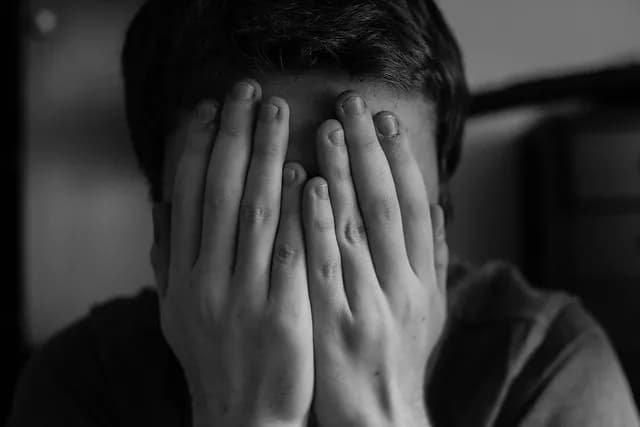
Depression Affects The Brains Of Males And Females Differently
When researchers in the UK exposed depressed adolescents to happy or sad words and imaged their brains, they found that depression has different effects on the brain activity of male and female patients in certain brain regions. The findings suggest that adolescent girls and boys might experience depression differently and that sex-specific treatments could be beneficial for adolescents.
Men and women appear to suffer from depression differently, and this is particularly striking in adolescents. By 15 years of age, girls are twice as likely to suffer from depression as boys. There are various possible reasons for this, including body image issues, hormonal fluctuations and genetic factors, where girls are more at risk of inheriting depression. However, differences between the sexes don't just involve the risk of experiencing depression, but also how the disorder manifests and its consequences.
"Men are more liable to suffer from persistent depression, whereas in women depression tends to be more episodic," explains Jie-Yu Chuang, a researcher at the University of Cambridge, and an author on the study, which was recently published in Frontiers in Psychiatry. "Compared with women, depressed men are also more likely to suffer serious consequences from their depression, such as substance abuse and suicide." Despite this, so far, most researchers have focused on depression in women, likely because it is more common.
This motivated Chuang and her colleagues to carry out this latest study to find differences between depressed men and women. They recruited adolescent volunteers for the study, who were aged between 11 and 18 years. This included 82 female and 24 male patients who suffered from depression, and 24 female and 10 male healthy volunteers. The researchers imaged the adolescents' brains using magnetic resonance imaging, while flashing happy, sad or neutral words on a screen in a specific order.
The volunteers pressed a button when certain types of words appeared and did not press the button when others appeared, and the researchers measured their brain activity throughout the experiment. When the researchers flashed certain combinations of words on the screen, they noticed that depression affects brain activity differently between boys and girls in brain regions such as the supramarginal gyrus and posterior cingulate.
So, what do these results mean? "Our finding suggests that early in adolescence, depression might affect the brain differently between boys and girls," explains Chuang. "Sex-specific treatment and prevention strategies for depression should be considered early in adolescence. Hopefully, these early interventions could alter the disease trajectory before things get worse."
The brain regions highlighted in the study have been previously linked to depression, but further work is needed to understand why they are affected differently in depressed boys, and if this is related to how boys experience and handle depression.
Because depression is more common in girls, the researchers were not able to recruit as many boys in this study, and future experiments should compare similar numbers of girls and boys for more representative results. Chuang and her colleagues would like to explore this phenomenon further. "I think it would be great to conduct a large longitudinal study addressing sex differences in depression from adolescence to adulthood."
Materials provided by Frontiers. Note: Content may be edited for style and length.
Disclaimer: DoveMed is not responsible for the accuracy of the adapted version of news releases posted to DoveMed by contributing universities and institutions.
Primary Resource:
Chuang, J. Y., Hagan, C., Murray, G. K., Graham, J. M., Ooi, C., Tait, R., ... & Lennox, B. (2017). Adolescent depression: neuroimaging evidence of sex difference during an affective go/no-go task. Frontiers in Psychiatry, 8, 119. DOI: 10.3389/fpsyt.2017.00119
Related Articles
Test Your Knowledge
Asked by users
Related Centers
Related Specialties
Related Physicians
Related Procedures
Related Resources
Join DoveHubs
and connect with fellow professionals

0 Comments
Please log in to post a comment.